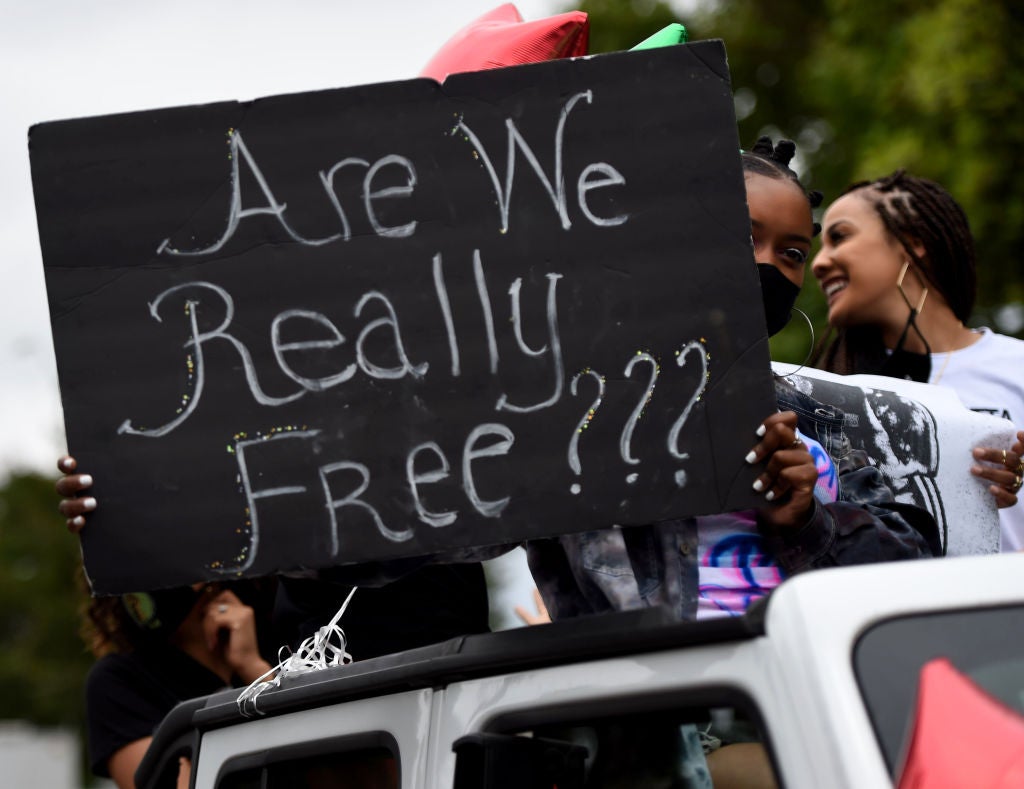
Black abolitionists and civil rights leaders risked their lives to pass on to our generation the freedoms they weren’t able to experience. As a way to honor their efforts, honor our own well-being, as well as that of our children, we should make a conscious effort to pursue the next steps toward liberation: mental and spiritual healing.
In addition to the profound range of artistry, scholarly intellect, innate athleticism, style and grace, and the creative and technological innovations that have immensely influenced modern culture, one thing I’ve come to admire about the Black community is our resiliency.
Though we are survivors, our spirit of perseverance is inevitably accompanied by deep-rooted, generational trauma.
While society persistently uses indoctrination to undermine our historical truths, educational resources like the Equal Justice Initiative’s report on Lynching In America, Nikole Hannah-Jones’ book, 1619 Project, and Isabel Wilkerson’s book, Caste, reveal the gory details of our past. That includes violent rape to brutal whippings, castration, public spectacle lynchings, mob violence, convict leasing, false convictions and socio-economic marginalization, just to name a few.
These findings make one thing clear: though we are physically free, it does not nullify the emotionally traumatic nuances passed on through generations due to enduring centuries of chattel slavery, racial terrorism, and institutionalized deviance and oppression.
Many psychological studies have been done on the notions of intergenerational trauma. One of which is psychotherapist Brandon Jones’ research on the Legacy of Trauma where he identifies the effects of epigenetics and “how the experiences of previous generations can affect who we are” and “how our genes are ‘expressed.’” His research findings further elaborate on how “epigenetic changes may be passed down from parent to child, directly affecting genes that control risk for conditions such as obesity, diabetes, anxiety and depression.”
Dr. Joy DeGruy has also highlighted her expansive 12-year research on the theory of post-traumatic slave syndrome (P.T.S.S.). It explains “the etiology of many of the adaptive survival behaviors in African American communities,” which “exists as a consequence of multigenerational oppression of Africans and their descendants resulting from centuries of chattel slavery.”
The trauma in our DNA and the inferior, self-destructive mentality we carry from being deprived and terrorized for 400 years shows us how mental, emotional, and spiritual healing is a necessity for our overall well-being.
Centuries of being severely traumatized cannot be counteracted in just a few years, but we can begin our healing journey by unlocking our mind through self-knowledge and therapy, building emotional and social intelligence, and finding spiritual healing, amongst other things.
This is the next step toward moving closer to Black liberation and reversing generational curses of trauma and ignorance.
So it’s important for us to use holidays like Juneteenth and Black History Month to not just celebrate our freedom and how far we have come, but also to remind ourselves of how far we still have to go and the healing and inner work that still has to be done.
As the great Marcus Garvey said, “We are going to emancipate ourselves from mental slavery, for though others may free the body, none but ourselves can free the mind.”





